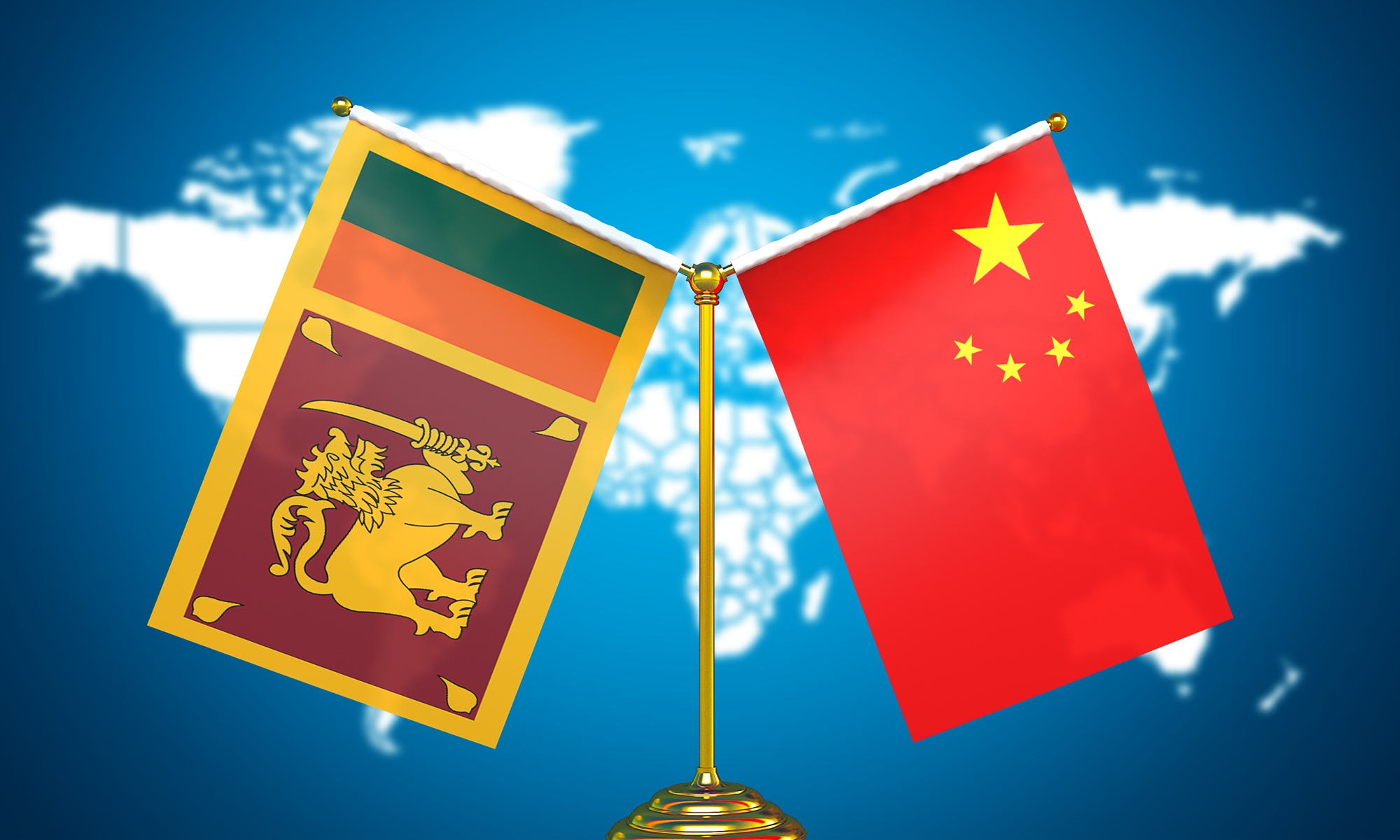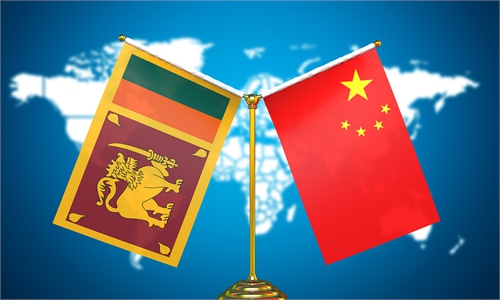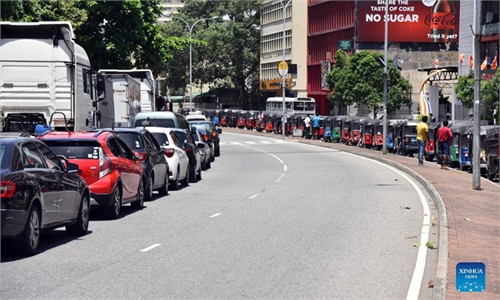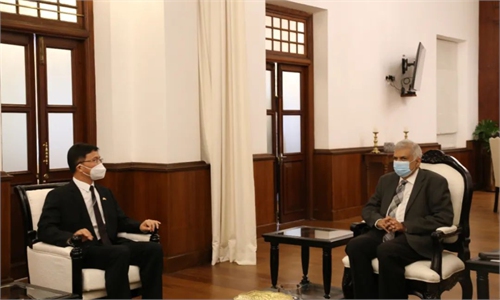
China Sri Lanka Photo:VCG
Sri Lankan Prime Minister Ranil Wickremesinghe said China had offered "a few hundred million dollars" in financial support to the debt-ridden country to help alleviate its shortage of essential consumer items, the Financial Times reported on Friday.
To a certain extent, China's willingness to come to Sri Lanka's aid is a loud response to the smear campaign being run by some Western media outlets: Their "debt trap" lies won't derail China-Sri Lanka cooperation.
It is true that a few developing countries have recently encountered debt problems, of which Sri Lanka's crisis is one of the most serious. The country recently defaulted on its foreign debt. Unsurprisingly, some Western countries have once again seized on the opportunity to discredit the Belt and Road Initiative (BRI) by claiming that Sri Lanka and others are caught in a "debt trap" laid by China.
But this debt trap narrative is nothing but a baseless smear that only reflects the double standards of the West. Only around 10 percent of Sri Lanka's external debt is owed to China, and the current economic difficulties faced by Sri Lanka are due to its failure to pay back money owed to financial-market creditors after running out of foreign reserves. But the weird thing is that only the debt owed to China is referred to as a "debt trap," with others seen as normal investments or loans.
In fact, what lays behind the West's hype over the "debt trap" theory is their frustration and anxiety about China's growing influence in the region. On the one hand, the West cannot and is unwilling to invest in major projects in developing countries, while on the other hand, they are concerned that the cooperation between China and developing countries could be used as a "trap" to control poor countries.
It should be pointed out that the West has a history of not only colonizing other countries but also interfering in their internal affairs through debt and other means. But it doesn't mean China is doing the same. During the BRI cooperation with Sri Lanka, China has always insisted on non-interference in its internal affairs and has never attached any political conditions to its investment and financing in the country.
The BRI has never been an initiative aimed at exporting a political model, but a program focused on improving livelihoods through development. By helping developing countries build essential projects and supportive infrastructure projects with socio-economic benefits, the BRI is supposed to help them escape the "poverty trap." And this is also why China has made it clear that BRI cooperation is not exclusive. Even though India has been wary of China's BRI projects in Sri Lanka, we still believe China and India can work together to promote economic development in the region.
Of course, there is no denying that even with China's help, the process for some countries to achieve sustainable economic development could be difficult and disrupted by external environment, as showed by Sri Lanka's current economic difficulties. But China's willingness to help these countries address their development obstacles hasn't changed. No matter what the West says, the countries along the BRI route will have the most say as to whether the BRI is a "debt trap" or an opportunity for development.



